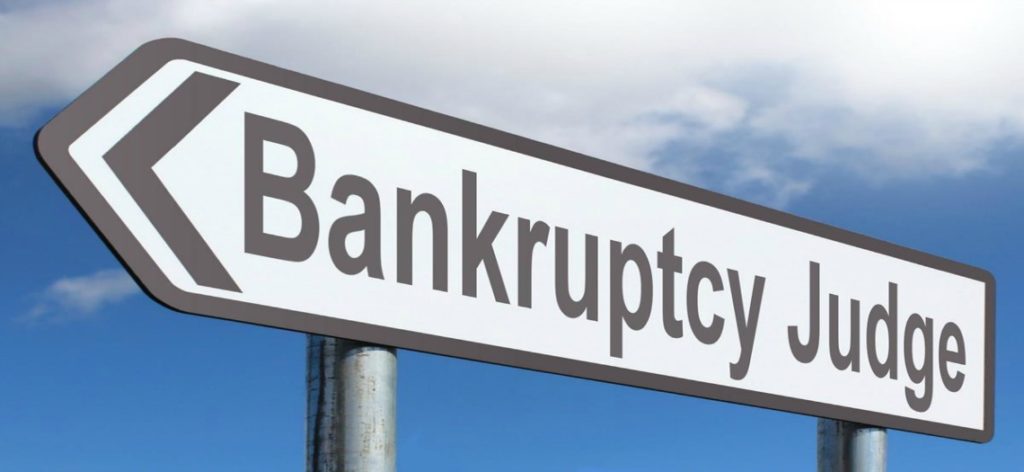Bankruptcy Counseling
Filing for Bankruptcy – Pros & Cons
What is Bankruptcy? Bankruptcy is a legal process that provides individuals and businesses experiencing financial distress with a fresh start by discharging or restructuring their debts. While it can offer significant relief, filing for bankruptcy also comes with its disadvantage, which can have long-lasting effects on one’s financial well-being.
Pros of Bankruptcy
- Discharge of Debts: One of the primary benefits of bankruptcy is the discharge of unsecured debts, such as credit card debt, medical bills, and personal loans. This can provide immediate relief and help individuals regain control of their finances.
- Automatic Stay: Upon filing for bankruptcy, an automatic stay is issued, which temporarily halts collection actions, including lawsuits, wage garnishments, and creditor harassment. This provides debtors with some breathing room and protection while they work through the bankruptcy process.
- Repayment Plan: In Chapter 13 bankruptcy, individuals can propose a repayment plan to pay off a portion of their debts over three to five years. This can make debt repayment more manageable and prevent the loss of valuable assets, such as a home.
- Financial Fresh Start: Bankruptcy provides debtors with a fresh start, allowing them to rebuild their credit and financial stability over time. With the right financial planning and habits, individuals can recover from bankruptcy and work towards a more secure financial future.
Disadvantages of Bankruptcy
- Impact on Credit Score: Filing for bankruptcy can have a significant negative impact on one’s credit score. A Chapter 7 bankruptcy can remain on your credit report for ten years, while a Chapter 13 bankruptcy remains for seven years. This can make it challenging to secure loans, credit, or even housing in the future.
- Loss of Assets: In Chapter 7 bankruptcy, debtors may be required to liquidate some of their assets to repay creditors. This can result in the loss of valuable property, such as a car or family heirlooms.
- Difficulty Obtaining Credit: After filing for bankruptcy, individuals may face challenges when attempting to obtain new credit. Lenders may view them as high-risk borrowers and charge higher interest rates or require larger down payments.
- Stigma: Bankruptcy can carry a social stigma, leading to feelings of embarrassment or shame for some individuals. It is essential to remember that financial difficulties can happen to anyone and that seeking help through bankruptcy is a legitimate and responsible solution.
- Ineligibility to Discharge Certain Debts: Not all debts can be discharged through bankruptcy. Examples of non-dischargeable debts include student loans (in most cases), child support, alimony, and certain tax debts. Individuals with significant non-dischargeable debts may not find the relief they need through bankruptcy.
The decision to file for bankruptcy should not be taken lightly. It carries both advantages and disadvantages. It is essential to carefully consider the impact on credit, the potential loss of assets, and the limitations of bankruptcy when evaluating whether it is the right solution. Consulting with a financial advisor or bankruptcy attorney can provide valuable guidance and insights into the best course of action based on one’s unique financial situation.
Sign Up For Bankruptcy CounselingDoes Bankruptcy Eliminate Debt?
Filing for bankruptcy does not necessarily eliminate all debts, and often simply restructures existing debts. This leaves you responsible for all future payments. Filing for bankruptcy also stays with you for up to 10 years and you may have difficulty getting any type of loan. Bankruptcy is a public record and will be reflected in your credit report but not permanently. Speak to one of our credit counseling experts if you need assistance.
Important: Federal law regulates bankruptcy, with cases managed by federal bankruptcy courts, though certain rules may vary across states.
Is Bankruptcy the Best Solution?
Anyone who is considering bankruptcy needs to fully understand the process and the laws surrounding bankruptcy. Questions about bankruptcy should be addressed by a licensed bankruptcy attorney. While it can offer a fresh start, it is not always the best solution for every situation.
Factors to Consider
- Severity of Debt: Evaluate the extent of your debt and your ability to repay it within a reasonable timeframe. If your debt is overwhelming and unmanageable, bankruptcy may be a suitable option. However, if your debt is manageable with careful budgeting and financial planning, alternative solutions may be more appropriate.
- Types of Debt: Not all debts can be discharged through bankruptcy. Non-dischargeable debts include student loans (in most cases), child support, alimony, and certain tax debts. If a significant portion of your debt is non-dischargeable, bankruptcy may not provide the relief you need.
- Income and Expenses: Assess your current income and expenses to determine if you have the financial means to repay your debts over time. If you have a stable income and can develop a repayment plan that fits within your budget, alternatives to bankruptcy, such as debt management plans or debt consolidation, may be more suitable.
- Impact on Credit: Bankruptcy can have a long-lasting impact on your credit, making it difficult to secure loans, credit, or even housing in the future. If maintaining a strong credit score is a priority, it is essential to explore alternative debt relief options before considering bankruptcy.
- Future Financial Goals: Consider your future financial goals and how bankruptcy might affect them. If you plan to purchase a home, start a business, or make other significant financial investments, bankruptcy can hinder these plans by limiting your access to credit and financing.


